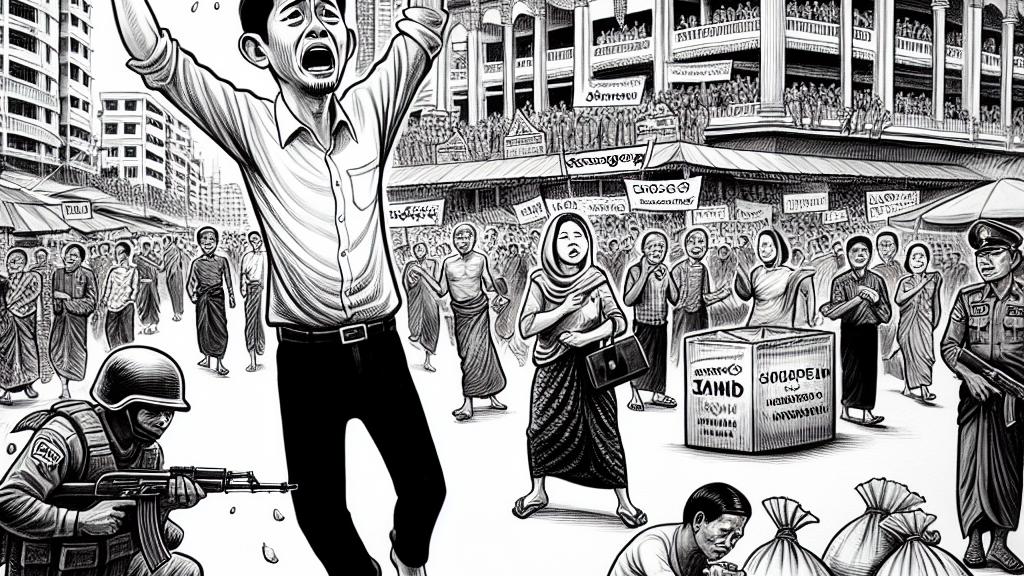Rice Prices Rise: Japanese Supermarket Director Freed Amidst Myanmar Mayhem!
Overview
- Hiroshi Kasamatsu, director of Aeon Orange in Myanmar, detained for price inflation amid economic turmoil.
- He was released after fears of selling rice above government-set prices during a crisis.
- Myanmar's rising rice prices are tied to environmental issues and ongoing military conflict.

Context of the Event in Myanmar
In June 2024, Hiroshi Kasamatsu, the Japanese director of Aeon Orange, was detained in Myanmar, a country facing increasing economic distress after the military coup of February 2021. This incident stemmed from allegations of his supermarket chain selling rice above government-authorized prices, exacerbating an already critical food crisis in Myanmar. Rice is not just a staple in Myanmar's diet; it forms the backbone of its agricultural economy and social fabric. The detention occurred in the bustling commercial heart of Yangon, underscoring the precarious balance between foreign commerce and local governance under the junta.
Economic Impact and Rising Rice Prices
The economic situation in Myanmar has sharply declined, resulting in rice prices soaring by more than 100% in recent months. This inflation is attributed to several factors, including adverse weather related to El Niño, which has negatively affected crop yields, as well as ongoing armed conflicts that disrupt transportation and farming activities. In response to citizen complaints and the need for stability, the junta has implemented stringent measures against those suspected of inflating prices, resulting in multiple arrests. This crackdown illustrates the government's effort to reestablish control over a turbulent economy and to address public grievances regarding essential food supplies.
Broader Implications for Foreign Businesses
Kasamatsu's release on August 12 raises critical questions about the future of foreign enterprises like Aeon Orange in Myanmar's unstable climate. As the military regime enforces stringent economic regulations to prevent further unrest, international companies must navigate complex challenges, including economic sanctions and public mistrust. The fluctuating economic situation poses significant risks, not just to business stability but also to the welfare of consumers facing food insecurity. As this crisis unfolds, it becomes increasingly imperative for foreign businesses to engage responsibly and adaptively, ensuring they fulfill their social responsibilities while remaining commercially viable in a deeply troubled political landscape.

Loading...